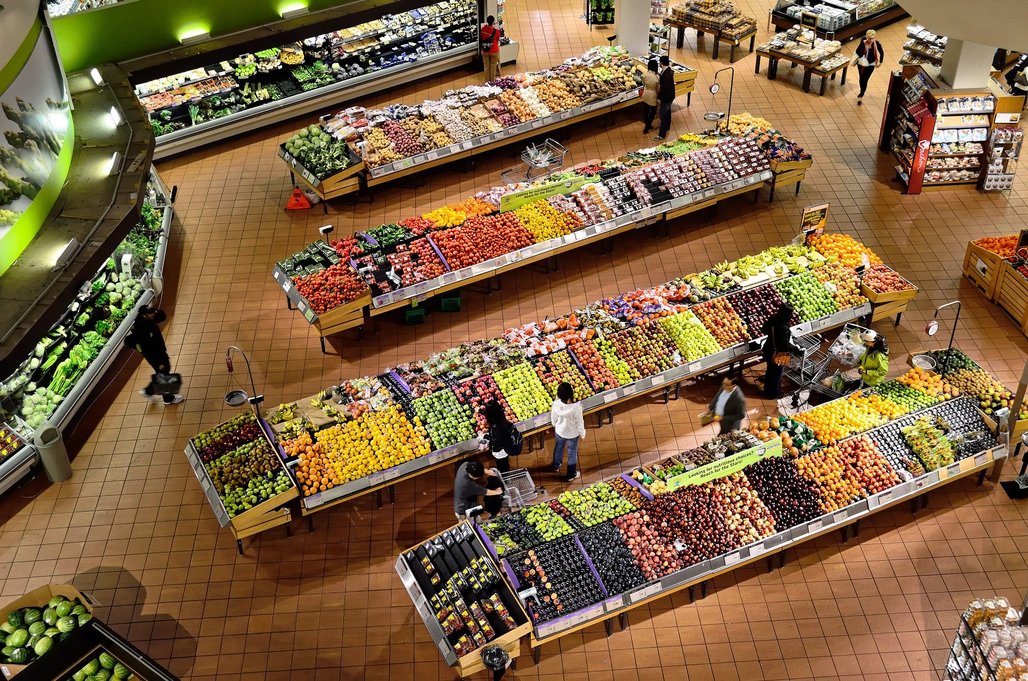Researchers at the University of Göttingen conducted a consumer survey across Germany starting in mid-April to find out how the coronavirus pandemic is affecting shopping, eating and cooking behaviour and just how crisis-proof people think the food system is. The survey responses from the first phase of collection show that the fear of rising food prices was high at the beginning of the pandemic. In addition, people shopped less frequently and placed greater emphasis not just on the shelf-life of products, but also on animal welfare, protecting the climate as well as the environment when choosing products. The results of the first phase of the survey have been published in a discussion paper at the Department of Agricultural Economics and Rural Development at the University of Göttingen.
The study is designed as a ‘panel study’ with three survey phases in total. This means that the same people were interviewed online three times during the pandemic. The survey is representative of the German population in terms of age, gender, education and regional distribution. 947 people participated in the first round. A key finding in the area of risk perception is that the fears of the citizens at the time of the survey are to a large extent focused on negative economic consequences. "It is particularly striking that the population had fears about rising food prices even as early as mid-April. Yet, at that time this was a topic that was not really being discussed in public that often," explains Dr Gesa Busch, first author of the study. In fact, the fear of rising prices is greater than the fear of food shortages.
The analysis of purchasing behaviour shows that people shop less frequently. The preferred product characteristics are now increasingly longer shelf-life, regionality of products and health. However, animal welfare, protection of the climate as well as the environment are also becoming more important for around a quarter of people. A comparison with data from a survey of farmers carried out by the working group of Professor Marcus Mergenthaler of the South Westphalia University of Applied Sciences shows that farmers have a different view: they assume that these aspects become less important for consumers during the crisis.
In contrast, the eating habits, in terms of consumed product categories, of the majority of those surveyed are unchanged. However, more people than before the coronavirus pandemic now cook a hot meal every day. This is increasingly true for people who spend more time at home due to working from home or quarantine.
Interestingly, the majority of respondents strongly condemn panic-buying behaviour and only a small proportion say they have bought to stock up. At the same time, respondents also see other people's panic-buying as the most important reason for potential food shortages. In contrast, official market data shows increased sales in certain categories at the beginning of the pandemic. "This contradiction can be explained by different points," says Busch. “Among other issues, it may be due to a difference between self-assessment and the assessment of others: it is 'the others' who are hoarding, not us." This assessment also has to do with the fact that, in view of the low stock levels in the food chain, even subjectively small additional purchases such as two packages of flour instead of one can lead to gaps in the shelves, which in turn reinforces the impression of scarcity.
The respondents fear food shortages primarily for staple foods, but also for seasonal vegetables and exotic fruits. Consumers consider shortages to be unlikely for meat and baked goods in particular.
"The results regarding the perception of the resilience of the food system during a crisis indicate the considerable support of the population for a high degree of national self-sufficiency in food," says Professor Achim Spiller. The interviewees agree relatively strongly that the essential staple foods or a minimum quantity of food should be produced in Germany or, even better, regionally. "Overall, we identified a thread of scepticism about globalisation from our data, which has been further strengthened by the coronavirus crisis," Spiller continues. However, due to a lack of relevant research, the authors are not yet able to answer the question of whether more national self-sufficiency really makes sense for greater resilience in a crisis.
The discussion paper can be found here: https://www.uni-goettingen.de/de/625255.html
Contact:
Professor Achim Spiller
University of Göttingen
Department of Agricultural Economics and Rural Development
Marketing for Food and Agricultural Products
Platz der Göttinger Sieben 5, 37073 Göttingen
Tel: +49 (0)151-42482716
Email: a.spiller@agr.uni-goettingen.de
https://www.uni-goettingen.de/en/11280.html
Dr Gesa Busch
Department of Agricultural Economics and Rural Development
Marketing for Food and Agricultural Products
gesa.busch@agr.uni-goettingen.de
www.uni-goettingen.de/en/350864.html


